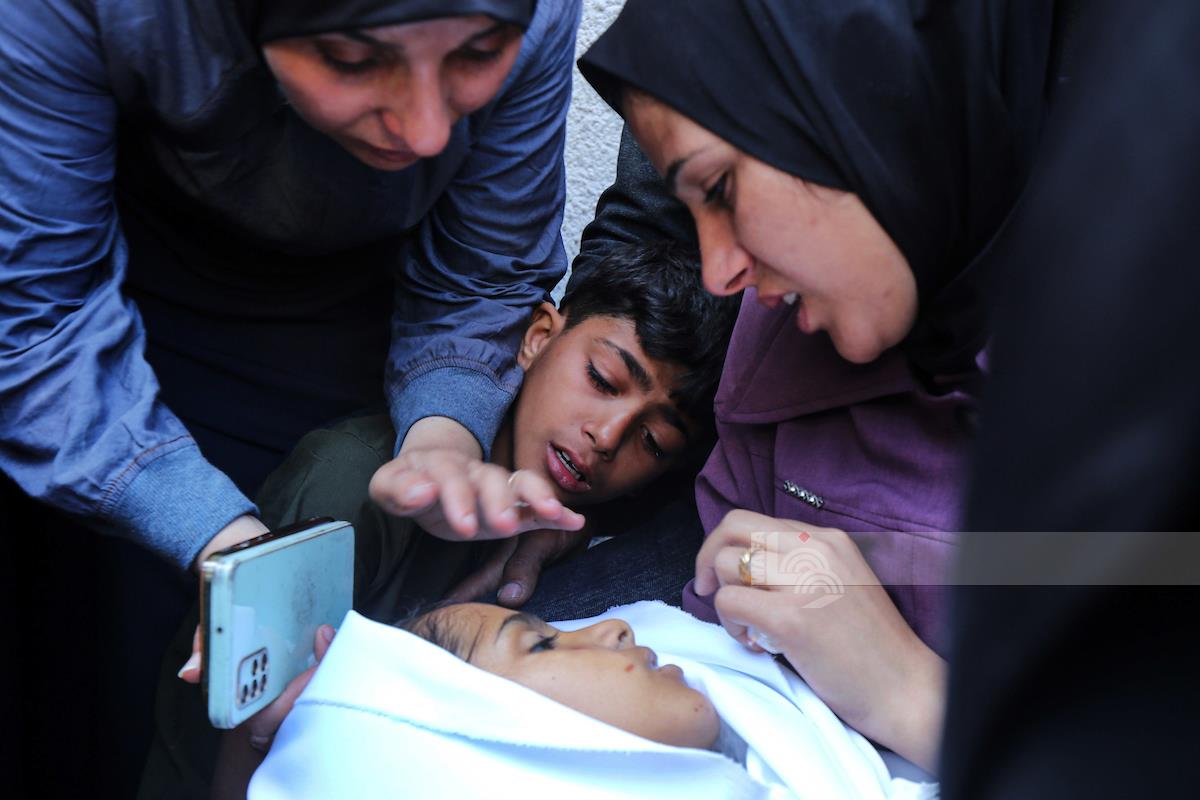JERUSALEM, February 13, 2010 (WAFA)- Israeli forces, including the Border police, municipal workers and an undercover police unit, carried out a search and arrest operation in Shu’fat refugee camp (East Jerusalem) during the early morning hours of February 8, the UN Office for the Coordination of Humanitarian Affairs said in its weekly report (February 3-9).
During the operation, intense clashes erupted between the Israeli police and Palestinian youth, which lasted for two days. According to the Israeli media, the operation aimed at arresting tax evaders.
During the confrontations, Israeli forces fired live ammunition, rubber‐coated metal bullets and sound bombs and Palestinians hurled stones at Israeli forces. As a result, at least 11 Palestinians were injured, including six Palestinian journalists covering the event, four of whom were physically assaulted by the Israeli police and two who were hit by stones. Five Israeli policemen were also injured by stones in the course of the clashes and several shops and vehicles sustained damages.
The number of people arrested and detained by the police remains unconfirmed, ranging between 35 and 100, according to different sources. While the camp lies within the Israeli‐declared boundaries of the Israeli municipality of Jerusalem and a large part of its residents hold Jerusalem IDs, the camp has been severed from the rest of the city by the Barrier, forcing the residents to cross a checkpoint in order to access services and workplaces.
In addition to the arrest operation in Shu’fat camp, Israeli forces conducted 101 search operations inside Palestinian towns and villages, roughly the same as the 2009 weekly average (103); the majority of these took place in the northern West Bank (69).
Also this week, Israeli forces injured eleven other Palestinians in various incidents throughout the West Bank. Among the injuries were two Palestinians injured by rubber‐coated metal bullets during the weekly demonstration held by Palestinian residents of Deir Nidham and An Nabi Saleh villages (against the expansion of Hallamish settlement in the Ramallah area) and seven Palestinians, including two boys, wounded in separate incidents involving physical assault by Israeli forces.
Moreover, Ten settler‐related incidents affecting Palestinians were recorded throughout the week, compared to a weekly average of seven incidents during 2009. Two of these incidents resulted in two injuries; a 76 year‐old Palestinian man from Wadi Kana (Qalqiliya) was hit by stones thrown by Israeli settlers while working his land; and a 17 year‐old boy was shot with live ammunition during clashes between settlers and residents of Iraq Burin village (Nablus). The remaining incidents involved property damage, physical assault (without injury) and trespass of private property.
Also during the week, Israeli settlers from the outposts around the settlement of Shilo installed four mobile homes on a hill next to Jalud village (Nablus), which overlooks an area of 500 dunums of privately‐owned Palestinian land. Entry of Palestinian farmers to this area, as well as to thousands of additional dunums of private land surrounding the settlements of Shilo and Eli, is possible only after prior coordinationʺ with the Israeli military. The establishment of the new outpost has raised concerns about further deterioration in access to this area.
This week, there was one incident that involved Palestinians hurling Molotov cocktails at Israeli vehicles driving near Al‐Lubban al‐Gharbi (Ramallah). No injuries or damage to vehicles were reported.
This week, long queues and delays were experienced at the Qalandiya checkpoint, the only checkpoint that Palestinians with West Bank IDs and valid entry permits are allowed to use to access East Jerusalem through the Barrier from the north. The delays occurred as a result of construction works aimed at expanding the checkpoint. While this expansion may contribute, once complete, to expediting the movement of people through the checkpoint, it is indicative of the entrenched separation of East Jerusalem from the rest of the West Bank.
Also this week, Israeli forces deployed throughout the West Bank a total of 88 “flying” ad‐hoc checkpoints, a significant decrease compared to a weekly average of 114 flying checkpoints since the beginning of 2010, but well above the 2009 weekly average of 65.
This week, there were no Palestinian casualties reported in the context of the Palestinian‐Israeli conflict. Since the beginning of 2010, Israeli forces have killed eight Palestinians and injured seven others inside the Gaza Strip1; no Israeli casualties were reported.
Israeli forces continue to enforce access restrictions on fishing areas beyond three nautical miles from the shore, a restriction enforced since January 2009. In one incident off the Beit Lahia (north Gaza) shore on February 7, Israeli naval vessels opened warning fire towards Palestinian fishing boats, detained four fishermen and confiscated two boats. The fishermen, who reported that they were inside the specified fishing zone at the time of the incident, were released later that day without their boats.










